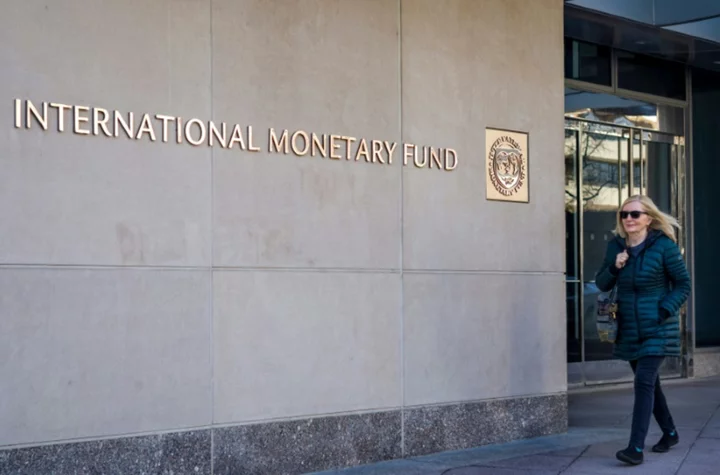The International Monetary Fund slightly raised its forecast for 2023 US economic growth Friday while noting that a slowing economy will likely lead to a small increase in unemployment in 2024.
"The US economy has proven resilient," IMF managing director Kristalina Georgieva said in a press conference, shortly after the updated figures were released.
Georgieva also sounded a warning about the ongoing stalemate in the United States over raising borrowing limits before a June 1 deadline, and called for Republicans and Democrats in Congress to come to a "speedy resolution."
"We think of the US Treasury market as an anchor for the global financial system, and this anchor needs to hold," she said.
Real GDP growth in the United States is expected to rise by 1.7 percent this year, up from 1.6 percent forecast earlier this year, before slowing to 1.0 percent in 2024, the IMF said in a statement.
The US unemployment rate, which is currently at near-record lows, is expected to tick up slightly, with "slowing, but still-solid, growth" pushing it to increase to 4.4 percent by the end of next year, the IMF statement said.
- 'Double-edged sword' -
The IMF's new US forecast follows recent data which indicates a resilient economy in spite of an aggressive campaign of interest-rate hikes to counter high inflation by the US Federal Reserve, and recent stresses in the banking sector.
Addressing inflation, Georgieva said resilient demand and a strong labor market had been "something of a double-edged sword" for the US economy.
"They have been certainly a boost to American families, but they have also contributed to more persistent inflation than had been anticipated," she said.
The IMF now expects inflation to remain stubbornly above-target into 2025.
As a result, Georgieva said, the Fed's job of raising interest rates "is not quite yet done."
Interest rates "will need to be somewhat higher for longer," if the Fed is to successfully bring inflation back down to its long-term target of two percent, she said.
The IMF's forecast indicates that the Fed's benchmark lending rate needs to rise by at least another 25 basis points to finish the year at 5.4 percent, and then stay there well into next year.
The Fed funds rate will be just under its current range of between 5 and 5.25 percent, the IMF predicted.
The Fed's most recent projections from March see the interest rate staying at its current rate this year, before falling to 4.3 percent in 2024.
While analysts remain divided on the likelihood of an interest-rate hike at the Fed's next meeting on June 13-14, futures traders now assign a roughly 67 percent chance the US central bank will vote to do so, according to data from CME Group.
da/bfm









